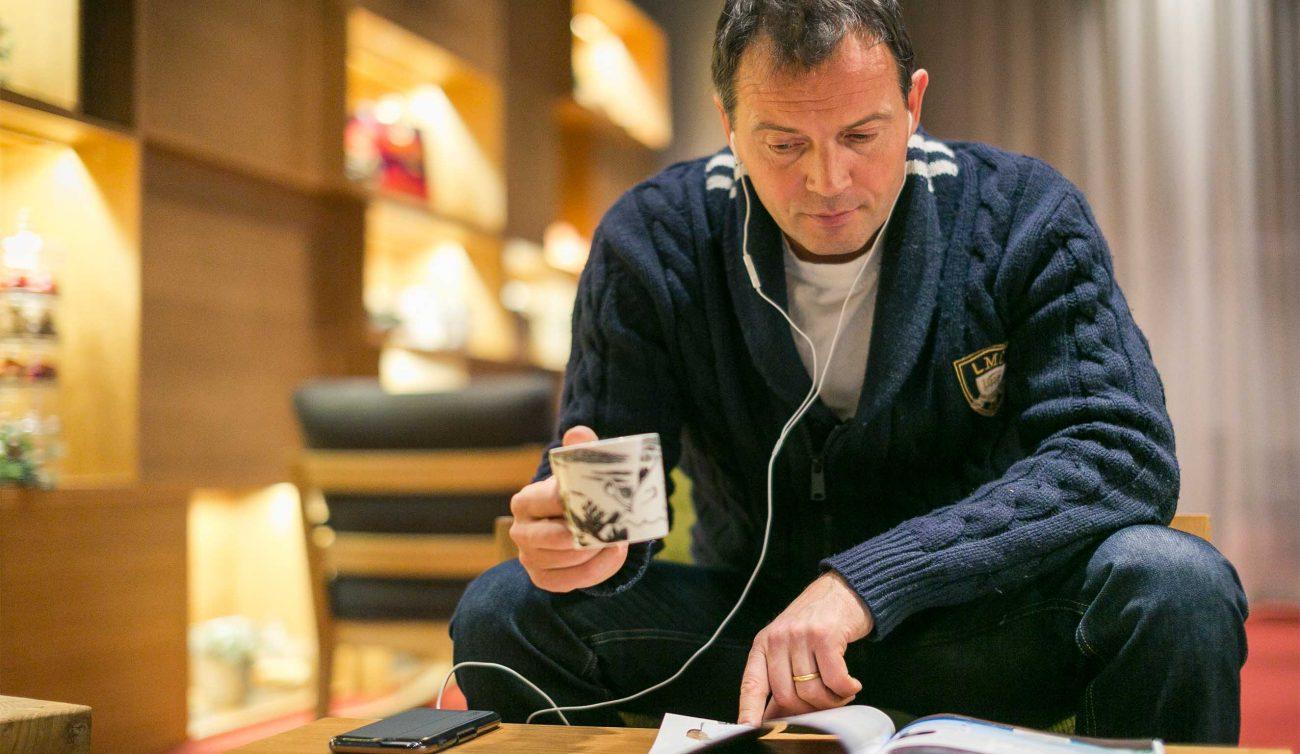
The holidays are ahead – be it Christmas, the New Year, Hanukkah, or some other holiday at the end of the year. During the lead-up period, the topic of holiday stress often comes up. A quick google search shows that (Christmas) holiday stress is clearly a phenomenon and tips for coping with it are easy to find. Looking at measured data, the Firstbeat Lifestyle Assessment database, with over 200 000 measurements, reveals that the amount of stress increases towards the end of the year, with Dec 23rd, 24th and 31st boasting the lowest amount of measured recovery all year! In this blog, I’ll share a few thoughts and reflections for approaching the holidays with common sense – to hopefully maintain a sense of balance and remain healthy before, during and after the holidays.
The Holiday season includes a lot of extra activity and can seem overwhelming, especially if you are a working parent with limited extra time and budget, and the needs of many to think about: cleaning and decorating the house, writing holiday cards or letters, shopping (more and in larger crowds than usual), holiday parties, drinking, eating rich foods, buying presents, cooking, baking, family gatherings … Maybe you are just starting to think about all that, wondering how to get it done or wishing that you could just wake up after the New Year. I think a certain amount of stress is acceptable and expected, maybe even needed to get it all done, but if stress starts to overpower enjoyment, some adjustments are in order.
Read our 4 simple steps to reduce stress →
There is a lot to be said for planning – and deciding what’s important and what’s not so important or can wait. Personally, that’s my most important guideline. I really like Christmas and maintaining traditions, but to keep it on the side of enjoyment, I need to pace myself, take a few deep breaths now and then and make some choices. By now, I’ve got the Christmas lights out and my “elf shelf” is up (decorations made by my kids and nieces; it’s a nice reminder of the magic of this season!), but shopping for presents and cooking and baking is ahead. And as much as I like getting Christmas cards, my own Christmas card list has dramatically shortened over the years, mainly including a few older relatives and friends who are not on social media; the rest get a Facebook greeting or phone call, and I refuse to feel guilty about it.

For some, a holiday might not seem like holiday unless they scrub the house from top to bottom (“joulusiivous”, yup, there is even a word for it in Finnish…), cook and bake from scratch, or hand-make beautiful presents and Christmas cards. But most people don’t have time or resources to do it all, nor should we feel pressured to do it all. It’s perfectly acceptable to clean the house after the New Year, buy some of the foods ready-made, or downscale the gift-buying rigmarole and remember that it’s the thought that counts. You must know your limits and decide what traditions really matter versus where shortcuts can be taken. Us women tend to have more trouble with this – trying to meet expectations or do everything the way it has always been done… This year, let’s try to keep things in perspective and do what feels right. After all, Christmas will come regardless of what you do, and it’s the spirit of the season and quality time with loved ones that creates the best memories, not the perfectness of your prep or the number of different dishes you can serve.
From the viewpoint of a Wellness Specialist, I would like to add a gentle reminder of moderation when it comes to eating, drinking and exercise. If we forego all our good habits that we usually follow, it can be a tough road back after the New Year, but that said, it’s also ok to indulge. You don’t need to stick to a strict diet or exercise program during the holidays, or feel guilty about spending a day watching movies in your pj’s, but you are going to feel a lot better physically and mentally if you also prioritize some time for physical activity, schedule lighter food choices between the heavier meals and include days with little or no alcohol to ensure good-quality sleep. How about a walk in the woods with family / friends, an outdoor game or a relaxing yoga session behind closed doors? Exercise is a great way to boost your well-being and resilience, relieve stress and get away from the hurry – and it also makes it easier to accept the extra calories with a smile.

A busy day-off 1 week before Christmas last year: not perfectly balanced, but including some good ingredients. The day’s hurry carried into the sleep (the 2 drinks surely contributed too…), but was balanced off by light physical activity and a nap to recharge.
Wishing an Enjoyable, Delicious and Peaceful Holiday Season to all!
Do you want accurate data that reveals how much even small breaks can boost your recovery levels in stressful times?
You might also be interested in

Reflection on My Dry January: Did It Make a Difference?
In Finland, 20-30% of adults take part in alcohol-free January. I decided to test this myself, collect some data and see how an alcohol-free month affects me. Would I notice some benefits, such as increased energy, better sleep, or even improved heart rate variability (HRV) during sleep?

The Big Picture of Wellness – Stress Management, Good Sleep and Nutrition Go Hand in Hand
Weight management and healthy eating are issues that wellness professionals face every day with their clients.

5 Practical Tips to Help Avoid Workplace Burnout
One of the biggest stress-related issues that continues to impact the workplace is burnout. But what can you do if you start to feel yourself heading in that direction?

